-
The Republic
Plato, Benjamin Jowett
eBookNone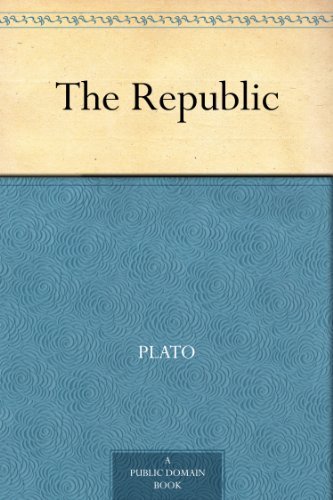
-
The Republic
Plato
eBook (AmazonClassics, )None
-
The Republic
Plato
eBook (Plato, March 29, 2017)Written in the form of a Socratic dialogue, The Republic is an investigation into the nature of an ideal society. In this far-reaching and profoundly influential treatise, Plato explores the concept of justice, the connection between politics and psychology, the difference between words and what they represent, and the roles of art and education, among many other topics. A towering achievement of philosophical insight, The Republic is as relevant to readers today as it was to the citizens of ancient Athens.This ebook has been professionally proofread to ensure accuracy and readability on all devices.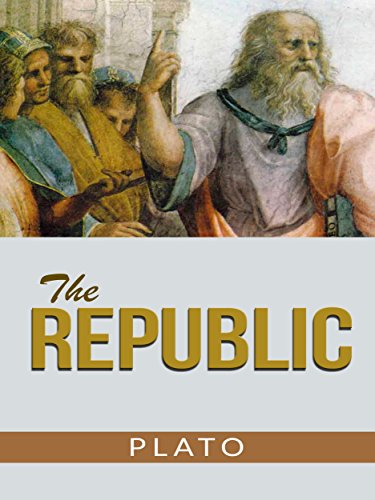
-
The Republic
Plato, Benjamin Jowett, Simon Blackburn
Paperback (Clydesdale, Jan. 2, 2018)Packaged in handsome, affordable trade editions, Clydesdale Classics is a new series of essential works. From the musings of intellectuals such as Thomas Paine in Common Sense to the striking personal narrative of Harriet Jacobs in Incidents in the Life of a Slave Girl, this new series is a comprehensive collection of our intellectual history through the words of the exceptional few.Originating in approximately 380 BC, Republic is a Socratic dialogue written by famed Greek philosopher Plato. Often referred to as Plato’s masterwork, Republic’s central goal is to define the ideal state. By conceptualizing this model state, Greeks believed it would lead states formed with its principles in mind to function the most efficiently and fairly, striving toward justice and the greater good of society.This edition includes a foreword by British American philosopher and Plato expert Simon Blackburn. Widely read around the world by philosophy students and academics alike, Plato’s Republic is sure to pass on its invaluable lessons and enlighten the next generation of thinkers.
-
The Republic
Plato, A.D. Lindsay, Alexander Nehamas
Hardcover (Everyman's Library, Jan. 11, 1993)Toward the end of the astonishing period of Athenian creativity that furnished Western civilization with the greater part of its intellectual, artistic, and political wealth, Plato wrote The Republic, his discussion of the nature and meaning of justice and of the ideal state and its ruler. All subsequent European thinking about these subjects owes its character, directly or indirectly, to this most famous (and most accessible) of the Platonic dialogues. Although he describes a society that looks to some like the ideal human community and to others like a totalitarian nightmare, in the course of his description Plato raises enduringly relevant questions about politics, art, education, and the general conduct of life. The translation is by A. D. Lindsay.
-
The Republic
Plato
eBook (Dover Publications, March 1, 2012)Often ranked as the greatest of Plato's many remarkable writings, this celebrated philosophical work of the fourth century B.C. contemplates the elements of an ideal state, serving as the forerunner for such other classics of political thought as Cicero's De Republica, St. Augustine's City of God, and Thomas More's Utopia.Written in the form of a dialog in which Socrates questions his students and fellow citizens, The Republic concerns itself chiefly with the question, "What is justice?" as well as Plato's theory of ideas and his conception of the philosopher's role in society. To explore the latter, he invents the allegory of the cave to illustrate his notion that ordinary men are like prisoners in a cave, observing only the shadows of things, while philosophers are those who venture outside the cave and see things as they really are, and whose task it is to return to the cave and tell the truth about what they have seen. This dynamic metaphor expresses at once the eternal conflict between the world of the senses (the cave) and the world of ideas (the world outside the cave), and the philosopher's role as mediator between the two.High school and college students, as well as lovers of classical literature and philosophy, will welcome this handsome and inexpensive edition of an immortal work. It appears here in the fine translation by the English classicist Benjamin Jowett.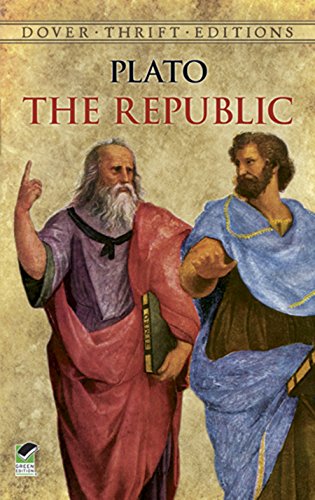
-
The Republic
Plato
Paperback (Dover Publications, April 18, 2000)Often ranked as the greatest of Plato's many remarkable writings, this celebrated philosophical work of the fourth century B.C. contemplates the elements of an ideal state, serving as the forerunner for such other classics of political thought as Cicero's De Republica, St. Augustine's City of God, and Thomas More's Utopia.Written in the form of a dialog in which Socrates questions his students and fellow citizens, The Republic concerns itself chiefly with the question, "What is justice?" as well as Plato's theory of ideas and his conception of the philosopher's role in society. To explore the latter, he invents the allegory of the cave to illustrate his notion that ordinary men are like prisoners in a cave, observing only the shadows of things, while philosophers are those who venture outside the cave and see things as they really are, and whose task it is to return to the cave and tell the truth about what they have seen. This dynamic metaphor expresses at once the eternal conflict between the world of the senses (the cave) and the world of ideas (the world outside the cave), and the philosopher's role as mediator between the two.High school and college students, as well as lovers of classical literature and philosophy, will welcome this handsome and inexpensive edition of an immortal work. It appears here in the fine translation by the English classicist Benjamin Jowett.
-
The Republic
Plato, Simon Blackburn, Benjamin Jowett
eBook (Clydesdale, Jan. 2, 2018)Packaged in handsome, affordable trade editions, Clydesdale Classics is a new series of essential works. From the musings of intellectuals such as Thomas Paine in Common Sense to the striking personal narrative of Harriet Jacobs in Incidents in the Life of a Slave Girl, this new series is a comprehensive collection of our intellectual history through the words of the exceptional few.Originating in approximately 380 BC, Republic is a Socratic dialogue written by famed Greek philosopher Plato. Often referred to as Plato’s masterwork, Republic’s central goal is to define the ideal state. By conceptualizing this model state, Greeks believed it would lead states formed with its principles in mind to function the most efficiently and fairly, striving toward justice and the greater good of society.This edition includes a foreword by British American philosopher and Plato expert Simon Blackburn. Widely read around the world by philosophy students and academics alike, Plato’s Republic is sure to pass on its invaluable lessons and enlighten the next generation of thinkers.
-
The Republic
Plato, GP Editors
eBook (GENERAL PRESS, Sept. 21, 2016)Plato's 'Republic' is widely acknowledged as the cornerstone of Western philosophy, written around 380 BC. Presented in the form of a dialogue between Socrates and three different interlocutors, it is an enquiry into the notion of a perfect community and the ideal individual within it. During the conversation other questions are raised—what is goodness? What is reality? What is knowledge?The dramatic date of the dialogue has been much debated and though it might have taken place sometime during the Peloponnesian War. It is Plato's best-known work and has proven to be one of the most intellectually and historically influential works of philosophy and political theory. In it, Socrates along with various Athenians and foreigners discuss the meaning of justice and examine whether or not the just man is happier than the unjust man by considering a series of different cities coming into existence 'in speech', culminating in a city called Kallipolis, which is ruled by philosopher-kings; and by examining the nature of existing regimes. The participants also discuss the theory of forms, the immortality of the soul, and the roles of the philosopher and of poetry in society.This ebook has been professionally proofread to ensure accuracy and readability on all devices.ABOUT THE AUTHOR:Plato is a Classical Greek philosopher, mathematician, student of Socrates, writer of philosophical dialogues, and founder of the Academy in Athens, the first institution of higher learning in the Western world. Along with his mentor, Socrates, and his student, Aristotle, Plato helped to lay the foundations of Western philosophy and science.Plato is one of the most important Western philosophers, exerting influence on virtually every figure in philosophy after him. His dialogue 'The Republic' is known as the first comprehensive work on political philosophy. Plato also contributed foundationally to ethics, metaphysics, and epistemology. His student, Aristotle, is also an extremely influential philosopher and the tutor of Alexander the Great of Macedonia.
-
The Republic
Plato
eBook (Open Road Media, Oct. 28, 2014)Plato’s most famous work and the bedrock of Western philosophy Written in the form of a Socratic dialogue, The Republic is an investigation into the nature of an ideal society. In this far-reaching and profoundly influential treatise, Plato explores the concept of justice, the connection between politics and psychology, the difference between words and what they represent, and the roles of art and education, among many other topics. A towering achievement of philosophical insight, The Republic is as relevant to readers today as it was to the citizens of ancient Athens. This ebook has been professionally proofread to ensure accuracy and readability on all devices.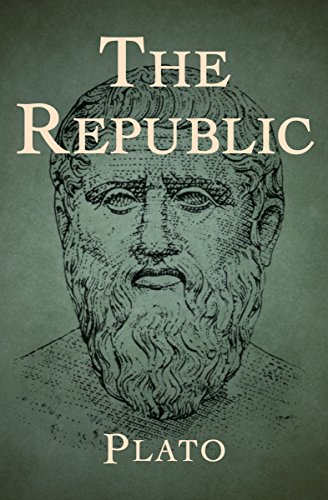
-
The Republic
Plato
Paperback (Independently published, Aug. 3, 2019)Written circa 380 BC, Plato's Republic is one of the world's most influential works of philosophy and political theory. Organized as a Socratic dialogue involving various Athenians, the Republic primarily focuses on the meaning of justice. Not content with a mere philosophical definition, the dialogue's participants go on to consider ways of organizing a just society and cultivating just individuals, topics as relevant today as they were for the ancient Greeks.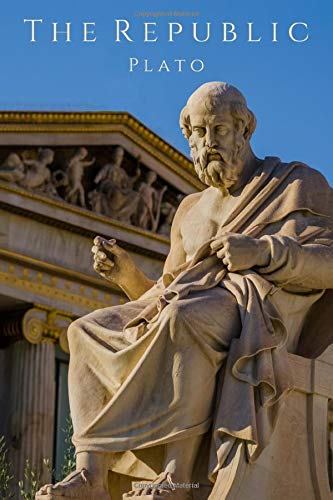
-
The Republic
Plato, Simon Blackburn, Benjamin Jowett
eBook (Clydesdale, Jan. 2, 2018)Packaged in handsome, affordable trade editions, Clydesdale Classics is a new series of essential works. From the musings of intellectuals such as Thomas Paine in Common Sense to the striking personal narrative of Harriet Jacobs in Incidents in the Life of a Slave Girl, this new series is a comprehensive collection of our intellectual history through the words of the exceptional few.Originating in approximately 380 BC, Republic is a Socratic dialogue written by famed Greek philosopher Plato. Often referred to as Plato’s masterwork, Republic’s central goal is to define the ideal state. By conceptualizing this model state, Greeks believed it would lead states formed with its principles in mind to function the most efficiently and fairly, striving toward justice and the greater good of society.This edition includes a foreword by British American philosopher and Plato expert Simon Blackburn. Widely read around the world by philosophy students and academics alike, Plato’s Republic is sure to pass on its invaluable lessons and enlighten the next generation of thinkers.